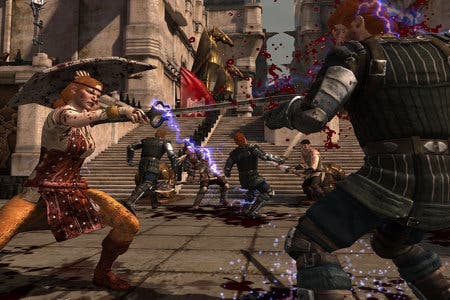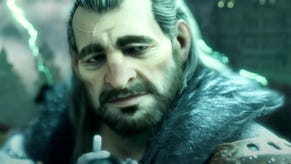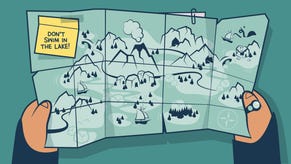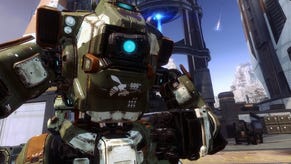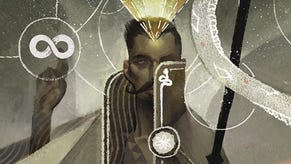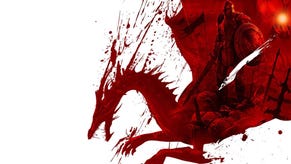Retrospective: Dragon Age 2
No sense of scales.
Aveline. If there's something special that I took away Dragon Age 2, something I really want to share with others or hold up as an example of what made the game worthwhile, it's Aveline. The travelling companion turned colleague turned captain of the guard was one of the very best examples of a strong, decent, uncompromised and well-rounded female character in gaming in a long, long time. I'm glad I adventured alongside her, I cared very much about what she had to say and her support meant a lot to me. That's pretty impressive for a collection of polygons and voice samples.
She also reflected the game at its very best: its strongest writing, its finest characterisation, its most engaging stories. The problem I have now is that I want an Aveline in every RPG I play. I'm not going to get one. In this respect, I've been spoiled.
I'm also glad she stuck with me right to the end, because otherwise I might not have made it. She was by my side as we stepped into another identikit dungeon, as we once more entered the caves under Sundermount, even as our city burned about us a second time and in a fashion that was suspiciously similar to it's previous conflagration. She, along with many of my other companions, kept me going when I thought I might falter, and not only did they save my neck many times, they also saved Dragon Age 2.
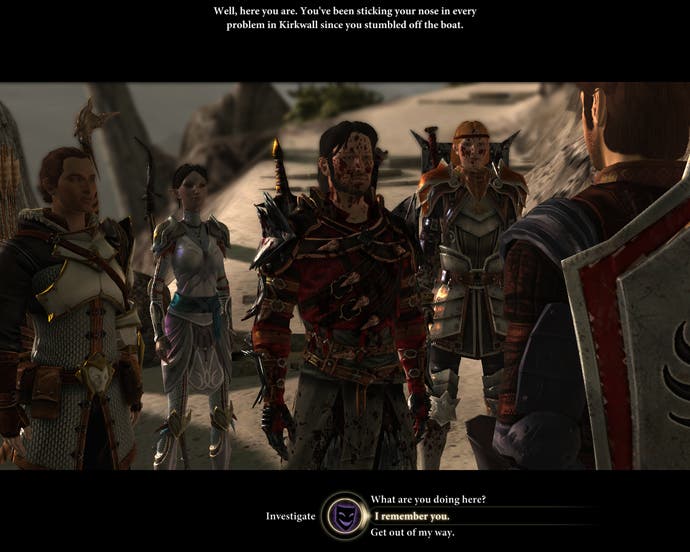
I don't understand the excitement that grasped the gaming press a year ago. In my most gentlemanly manner, I respectfully disagree with Dan's review of the game and, frankly, I'm baffled by the positive critical reaction that the game received. Dragon Age 2 had some great moments and it certainly had a lot going for it, but that didn't stop it being a ragged, stumbling and sometimes very flawed experience.
My adventure began on the cold stone streets of Kirkwall, surrounded by the city's towering buttresses and watched by its cruel and impassive statuary, and yet it also ended here too after what felt like a strangely stationary adventure. For all the sense of scale that this great and terrible place tried to communicate, it slowly suffocated its visitors over the game's three acts. Not only did Dragon Age 2 like to recycle the same cave and dungeon levels; it couldn't help but send you on lap after lap around the same locations until adventuring felt like serving a newspaper route.
In spite of the magnitude of the city and its surrounding mountains, for all the dramatic beauty there was to be found under the heavy, grey skies, treading these same few streets and paths time and again made them horribly familiar, until Kirkwall and its locale became a chicken run, its adventurers forever skirting its edges, pecking experimentally at the wire.
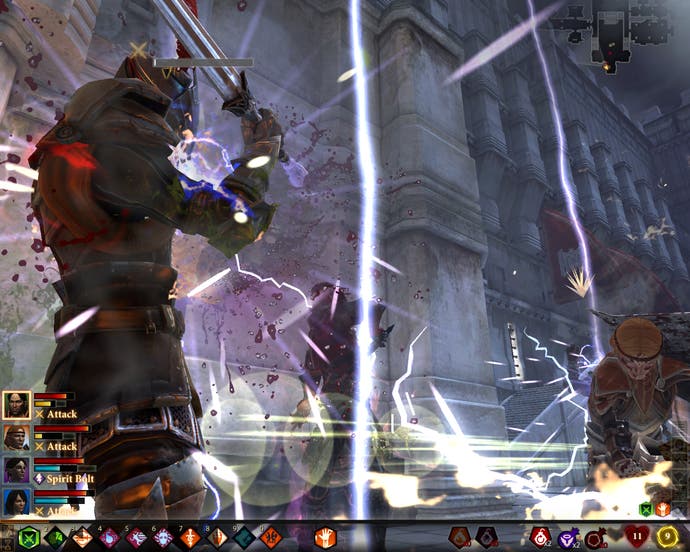
Yet it almost pulled off its attempt to look inward, to turn the focus of the narrative upon the adventurer, the party and their role in the city. The unusual collection of hangers-on that you gradually amassed were distinct and interesting characters who you could grow to love or hate. Stand-outs included the dry and droll Varric, the naïve yet worryingly dangerous Merrill (voiced superbly by Torchwood's Eve Myles) and, of course, Aveline, practical, pragmatic and ever-reliable.
It wasn't simply that these characters were well-written, but that they were independent enough to not simply toe your line. You never felt entirely in control of them and, perhaps too, that you could never completely trust them. There was the potential for great rifts to develop in your party, sometimes with serious and permanent consequences, and your colleagues felt little need to consult you on whatever they planned to do next.
By the end of the game I had my own personal tale to tell, my own story of romance, betrayal, victory and loss, and I was amazed to find I'd changed my mind about some of these characters based on things they'd told me. I felt disappointment when I was forced to fight a former ally and found myself impressed by the integrity of another. I even warmed to Isabela, a buxom pirate who I'd originally dismissed as nothing more than a horrid embodiment of male gamer fantasy, when I came to understand more of the character underneath.
I watched them grow and change around me, watched them try to realise their ambitions and, to my great surprise, found that things don't always work out for heroes. As my party took yet another lap around Kirkwall, I'd enjoy their banter and their bickering, but it never occurred to me that any of us would fall out or experience failure. Some of my party members did terrible, terrible things or made the most tragic of mistakes.
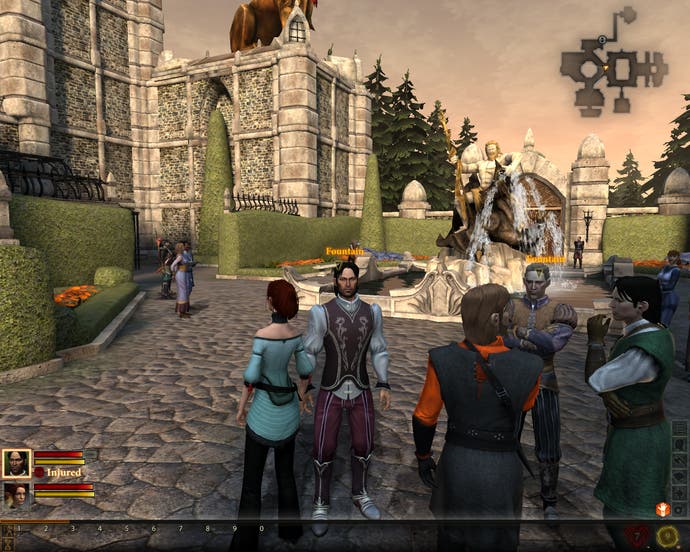
But there were more than a few moments where this elaborate characterisation, and the game's twisting, winding narrative, were compromised by moments of remarkably stiff dialogue. You could find yourself caught up in a deep and revealing conversation with someone, only for it to turn into a stilted question-and-answer session. Any sense of movement or tension was lost as characters faced one another, stock still, and your party became as wooden as an Ikea showroom. Impassioned pleas would followed by what could be best described as the most indifferent of interrogations.
And the combat. Oh man, the combat. It was almost good. It was almost great, and yet it was also suffered from the same split personality that divided the rest of the game. At its best, it was an exciting and visceral experience, with spells, arrows and more than a few flecks of blood flying across the battlefield. Cross-class combos were complimented by smart and context-sensitive AI that made you feel like you could really rely on your party.
At its worst, it was a seemingly endless stream of the same enemies and creatures, more and more spawning just as you thought a battle was over, ruining any sense of pace or tension. Not only have you seen almost every location in the game by the end of the first act, you've also fought pretty much every monster it will ever have to offer. But you haven't seen the last of them. You'll never see the last of them. Demons spawn everywhere, every day, with almost any excuse.
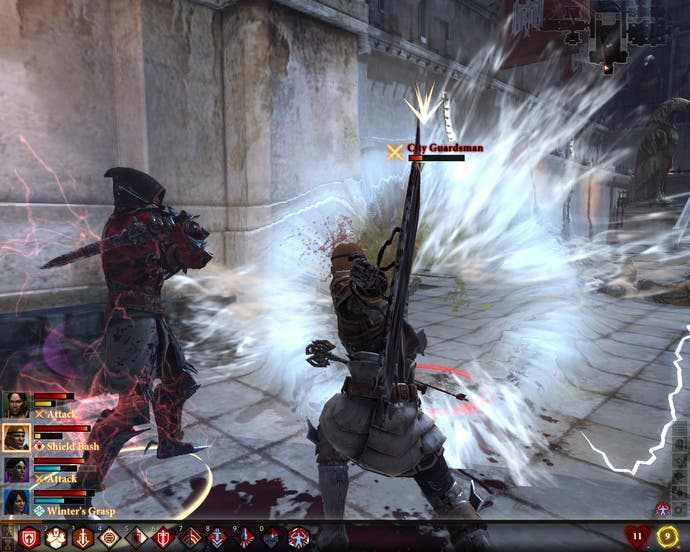
You'll have to fight all this stuff too, because the solution to almost every one of Dragon Age 2's problems, even its most interesting ethical dilemmas, is to hit something until it bursts, falls over, or bursts and then falls over. Perhaps I've been spoiled by games like Fallout and Planescape: Torment, but I'd like to think there are sometimes other approaches to problem-solving.
Then there's the smattering of inconsistencies or strange half-finished ideas that are scattered throughout the game: taking up an offer to run a mine never really amounted to much, except providing an excuse to bash more monsters; Kate Mulgrew puts on a fantastic performance as the legendary witch Flemeth, appearing in prologue and first chapter, but is conspicuously (and sadly) absent from the rest of the game even though she's one of the best things in it; there is strange and distant music playing in part of the Wounded Coast region for no apparent reason; the game is packed to the gills with loot and magic items and you can't open a cupboard in a kitchen without finding yet another pair of enchanted bracers. The latter makes the game seem like one single, slightly confused member of the development team thought they were making the next Diablo, and yet they also thought that broken swords, raven feathers and small wet pouches of incense (What the hell?) were things adventurers really wanted to collect.
Yet I can't feel bad about the time I spent playing Dragon Age 2. I'm delighted I had the chance to enjoy the journey that it took me on and I was fascinated by the characters who came along, even if it dragged in the final act and climaxed so disappointingly. Much as the game wanted to show me that being a hero doesn't always work out great, this ended up as a particularly appropriate reflection of a game that, itself, didn't really turn out the way it should have.
"I never wanted to mess up your life like this," Aveline once said to me. That's okay. For all the mess, it was still worth it.
